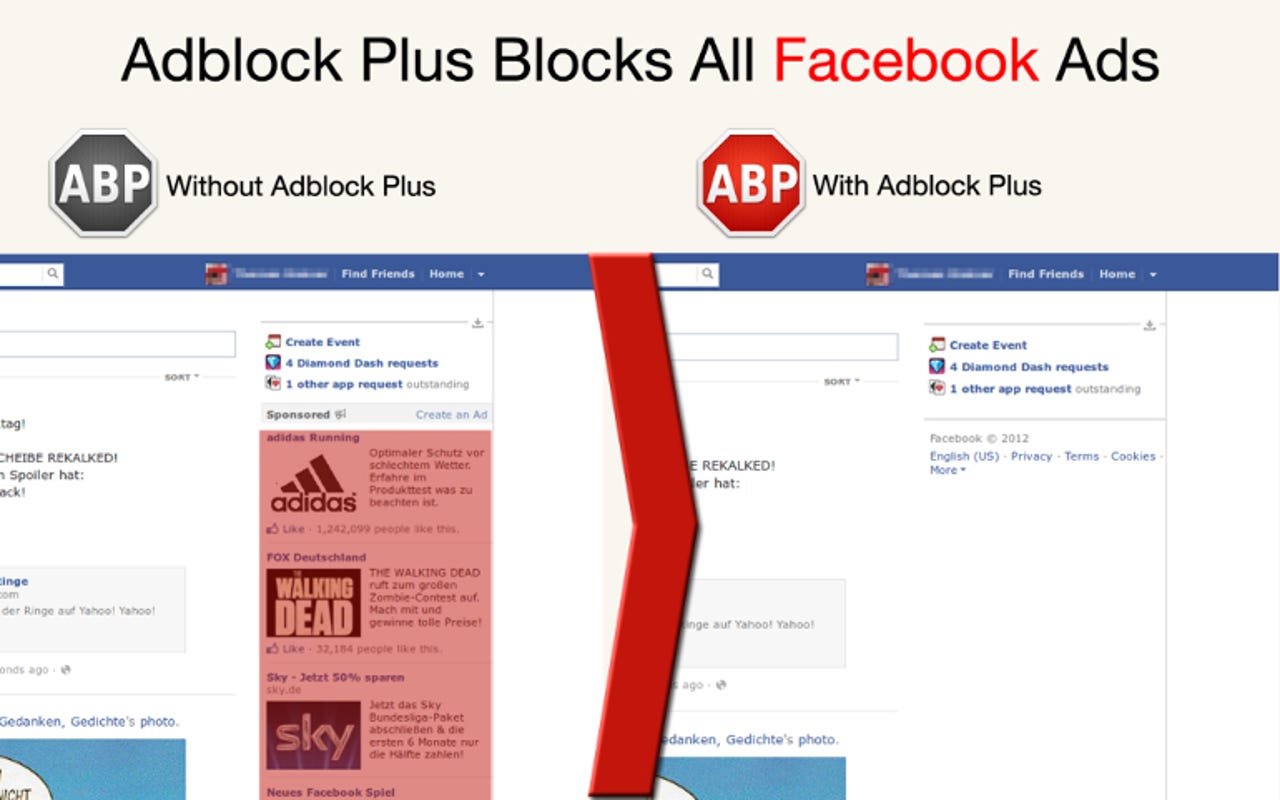Adblock Plus seeks online pact to let 'acceptable' ads through filters


Adblock Plus developer Eyeo and publishers are weighing up a new body to identify ads that can bypass filters.
Adblock Plus developer Eyeo is in talks with publishers to set up an independent group to identify 'acceptable' ads that should be allowed past blockers.
The new body to judge and enforce acceptable online advertising could be the solution that breaks the existing deadlock between online publishers and ad-blocking firms.
Eyeo, which is being sued by German publisher Axel Springer, claims to have wrapped up talks about the creation of such a group with big-name European publishers, ad-tech firms, content firms, and non-profits at a summit in London last week. A similar meeting, dubbed "Camp David", was held in New York in November.
Eyeo's head of operations Ben Williams told ZDNet that it plans to launch the committee by late August and is aiming to have representatives from publishers, advertising tech, and advertisers on one side. On the other side, it wants "user agent" representatives, such as a browser maker and possibly other ad blocker outfits, users rights groups, and content creators such as journalists and YouTube video makers.
see also
An independent body could help alleviate some of the angst over Eyeo's role as one of the more popular ad-blocker makers in overseeing the whitelist of publishers that are permitted to bypass its filters.
Websites currently need to apply to be on that whitelist and confirm their site complies with Eyeo's Acceptable Ads criteria.
Eyeo also accepts payment from larger companies, which it says is to fund the management of its filter lists.
Google, Amazon, Microsoft, and sponsored content ad firm Taboola are among a handful of firms that paid Eyeo last year to bypass its filter. According to Eyeo, its licensing fee "normally represents 30 percent of the additional revenue created by whitelisting its acceptable ads".
Axel Springer has taken a tougher stance against Eyeo and other ad blockers. The publisher is continuing to pursue its lawsuit against Eyeo, despite a German court ruling in September that the Acceptable Ads program was legal.
Eyeo's Williams declined to comment on any of the company's pending legal cases.
Axel Springer's Bild brand in November introduced a new policy requiring visitors to switch off ad blockers or buy a subscription with fewer ads. In the same month the company's Die Welt title then filed for an injunction against mobile ad blocker Blockr.
Anti-ad blocking from PageFair and Adobe estimated that ad blocking cost the publishing industry $22bn last year.
Eyeo introduced its whitelist in 2011 after running a survey that found 75 percent of its users would accept some advertising, while 25 percent were against all advertising.
Read more about ad blocking